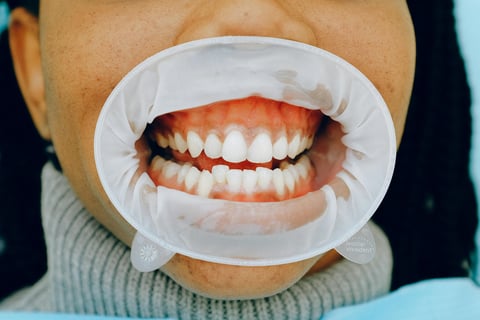Tooth Decay and Bad Breath
Discover how tooth decay and bad breath can cause symptoms, and effective solutions. Read the article to learn more about keeping your breath fresh! Gain insights into maintaining optimal oral hygiene and preventing cavities. Find out which habits and professional treatments work.
Does Tooth Decay Cause Bad Breath? Symptoms and Solutions Explained
What is Tooth Decay?
Tooth decay, also known as dental caries, is a bacterial infection that causes demineralization of tooth enamel.
It is a common oral health issue that can lead to discomfort, pain, and bad breath. Cavities cause bad breath by creating environments that allow bacteria foul odor to thrive, leading to unpleasant odors.
Tooth decay can be caused by poor oral hygiene, sugary foods, and inadequate saliva production.
Regular dental check-ups can help prevent tooth decay and detect it in its early stages.
Causes of Bad Breath
Bad breath, also known as halitosis, can be caused by bacteria accumulation in the mouth.
Poor oral hygiene, dry mouth, and gum disease can contribute to bad breath.
Certain foods, such as garlic and onions, can also cause temporary bad breath.
Chronic bad breath can be a sign of an underlying oral health issue, such as tooth decay or gum disease.
Symptoms of Tooth Decay and Bad Breath
Tooth decay can cause tooth pain, sensitivity, and visible holes or cracks in teeth.
Bad breath can be a sign of tooth decay, as well as other oral health issues.
Other symptoms of tooth decay include white spots on teeth, tooth discoloration, and tooth loss.
If left untreated, tooth decay can lead to more severe oral health issues, such as abscesses and infections.
The Connection Between Tooth Decay and Bad Breath
Tooth decay can cause bad breath by allowing bacteria to accumulate in the mouth.
Bacteria in the mouth can produce volatile sulfur compounds, which can cause bad breath.
Cavities can also contribute to bad breath by providing a breeding ground for bacteria.
Seeing your dentist regularly can help detect tooth decay and prevent bad breath.
Impact of Diet on Oral Health
A well-balanced diet plays a crucial role in maintaining good oral health and preventing bad breath. Consuming sugary and acidic foods and drinks can contribute to tooth decay and cavities, which can lead to bad breath. Foods high in sugar and starch feed the bacteria in the mouth, producing acids that erode tooth enamel and cause cavities.
On the other hand, a diet rich in fruits, vegetables, and whole grains can help maintain fresh breath and prevent oral health issues. These foods provide essential nutrients that support overall health and help keep your teeth and gums strong. Drinking water throughout the day is also beneficial, as it helps rinse away food particles and bacteria, reducing the risk of bad breath and cavities.
Limiting sugary and acidic foods and drinks is essential for preventing cavities and maintaining good oral hygiene. Chewing sugar-free gum can stimulate saliva production, which helps neutralize acids and remineralize teeth. Saliva is a natural defense against tooth decay and bad breath, as it helps wash away food particles and bacteria.
A healthy diet can also help prevent dry mouth, a condition that can contribute to bad breath and other oral health issues. Staying hydrated and consuming a balanced diet can ensure that your mouth produces enough saliva to keep it moist and healthy.
Regular dental check-ups are vital for identifying and treating oral health issues related to diet. Your dentist can provide personalized advice on how to adjust your diet to improve your oral health. Maintaining good oral hygiene practices, such as brushing and flossing, is crucial for preventing bad breath and cavities, regardless of your diet.
In summary, a healthy diet is a key component of good oral health. By making smart dietary choices and practicing good oral hygiene, you can prevent tooth decay, bad breath, and other oral health issues.
Preventing Tooth Decay and Bad Breath
Good oral hygiene practices, such as regular brushing and flossing, can help prevent tooth decay and bad breath.
Using fluoride toothpaste and a soft-bristle toothbrush can help clean teeth effectively.
Avoiding sugary foods and drinks can help prevent tooth decay and bad breath.
Regular dental check-ups can help detect oral health issues early on and prevent more severe problems.
For those who wear dentures, thorough cleaning is essential to prevent bad breath, plaque buildup and bacteria buildup.
Treating Tooth Decay
Tooth decay can be treated with fillings, crowns, or root canals, depending on the severity of the decay.
Regular dental check-ups can help detect tooth decay early on and prevent more severe problems.
Fluoride treatments can help prevent tooth decay and strengthen tooth enamel.
In severe cases, tooth extraction may be necessary to prevent further oral health issues.
Remedies for Bad Breath
Practicing good oral hygiene, such as brushing and flossing, can help treat bad breath.
Using a tongue scraper to remove bacteria and residue from the tongue can help freshen breath.
Chewing sugar-free gum can help stimulate saliva production and neutralize acids in the mouth.
Avoiding certain foods, such as garlic and onions, can help prevent temporary bad breath.
Maintaining Good Oral Hygiene
Regular dental check-ups can help maintain good oral hygiene and prevent oral health issues.
Brushing and flossing regularly can help remove bacteria and food particles from the mouth.
Using fluoride toothpaste and a soft-bristle toothbrush can help clean teeth effectively.
Avoiding sugary foods and drinks can help prevent tooth decay and bad breath.
Conclusion
Tooth decay can cause bad breath by allowing bacteria to accumulate in the mouth.
Practicing good oral hygiene, such as brushing and flossing, can help prevent tooth decay and bad breath.
Regular dental check-ups can help detect oral health issues early on and prevent more severe problems.
Maintaining good oral hygiene is crucial for preventing tooth decay, bad breath, and other oral health issues.





